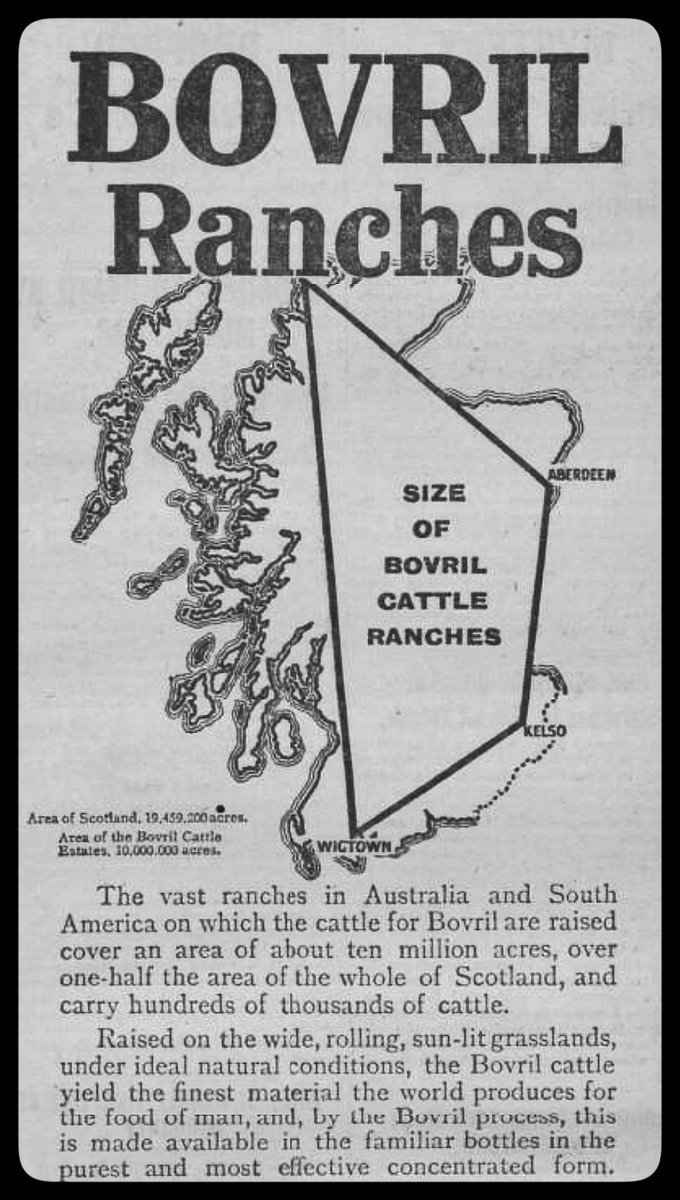Between 1986-1995, Fort Augustus man, Jerry Johnson made a drink called “Augustine Nectar” that was made from heather and thistles. Touted as a non-alcoholic alternative to whisky, the vast majority was drunk by Mormons in Utah and California.

Between 1986-1995, Fort Augustus man, Jerry Johnson made a drink called “Augustine Nectar” that was made from heather and thistles. Touted as a non-alcoholic alternative to whisky, the vast majority was drunk by Mormons in Utah and California.

In 1996 United Distillers teamed up with A.G. Barr to produce an alcopop: Bell’s Whisky and Irn-Bru. Notoriously disgusting, it was soon discontinued.


A recipe from Greenock, 1909.


Charming logo for Mrs. Fettes’s Tea Warehouse, Edinburgh (1761)
BOVRIL! A Scotlands-worth of beef concentrated into a jar–so you *know* it’s beefy.
(Dundee Evening Telegraph, 1924)

In the 19th century, many Scots would not eat *any* fresh vegetables, unripe berries, or new potatoes in case they caught “the Scotch cholera” which was supposed fatal in less than a day.
(in reality it was bacterial gastroenteritis)

In 1821, there were about 200 pubs in the town of Perth. The number of Perthlings of drinking age (15+) in 1821 was 12,665.

I make that roughly one pub per 63 people and a damn long pub crawl.
In the 1600s, Nairn paid “honest men” called cunnisters to publicly “tak tryall o the ale or beer from every inn thrice weekly” and loudly declare whether it was good or not. Brewers were fined a shilling for every bad pint the cunnisters got.

Update:
Seems that “ale-cunnars” have been important roles in Scottish burghs since at least the 15th century including references from Peebles (1460), Prestwick (1470), Dunfermline (1497), Stirling (1548), and Lanark (1569)
Bain, G. (1893) History of Nairnshire. Nairn Telegraph Office, Nairn. pg.333
“cunnar”. Dictionary of the Older Scottish Tongue. https://dsl.ac.uk/entry/dost/cunnar
n. What folk in the Netherlands once called eggs on toast.


On 28th December 1950, the Australian Airforce flew 585km from Iwakuni, Japan to Suwon-si, South Korea with 180lbs of haggis so the Argyll and Sutherland Highlanders could have a “proper Hogmanay” in the first year of the Korean War.
The mission’s codename: “Operation Haggis”

RAAF Unit History sheets (Form A50) [Operations Record Book – Forms A50 and A51] Number 36 Squadron (Ex 30 Comm Unit) Nov 50 – Jul 66 [6cm]. National Archives of Australia. pg 210.